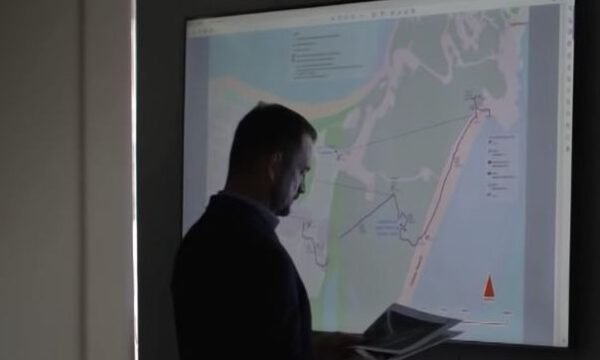Fugitive Investigators

Fugitive investigations play a crucial role in maintaining law and order by tracking down individuals who have evaded justice. Whether they are fugitives from criminal charges, suspects on the run, or individuals who have violated the terms of their release, fugitive investigations require a unique blend of skills, resources, and determination.
If you find yourself in need of identifying assets and recovering damages from a criminal whose whereabouts remain unknown, Hilfbereich is here to help. Our team can not only locate the fugitive but also trace any associated assets or bank accounts, facilitating their freezing and seizure through a court of law.
Understanding the Concept of Fugitive Investigations
Fugitive investigations refer to the process of locating and apprehending individuals who have escaped the criminal justice system, whether they have escaped from prison or are on the run after committing a crime. By bringing fugitives to justice, we ensure the safety of our communities and send a clear message that no one can evade the consequences of their actions. Moreover, fugitive investigations often lead to the apprehension of not only the original escapee but also uncovering additional criminal activities and accomplices.
Traditional Investigation Methods
When it comes to tracking fugitives, old-school tactics are still as valuable as ever. Traditional investigation methods, such as conducting interviews, reviewing case files, and collaborating with other law enforcement agencies, can provide crucial leads.
Gathering and Analyzing Intelligence
In reality, it involves piecing together information from various sources, such as informants, confidential tips, and even the good old internet. By connecting the dots, investigators can uncover hidden patterns, locate potential hideouts, and ultimately get closer to nabbing those elusive fugitives.
Advancements in Digital Forensics and Data Analysis
Technology has truly become our crime-fighting sidekick. With advancements in digital forensics and data analysis, investigators can dive deep into the digital footprint of fugitives. They can uncover hidden emails, track online activities, and even recover deleted files
Utilizing GPS Tracking and Electronic Monitoring
In the age of technology, we can’t forget about GPS tracking and electronic monitoring. By slapping a GPS tracker on a fugitive or using electronic monitoring devices, law enforcement can keep tabs on their movements and whereabouts.
Social Media and Online Investigation Techniques
Fugitives often slip up and leave digital breadcrumbs on social media platforms, providing investigators with valuable leads. By utilizing online investigation techniques, law enforcement can sift through posts, photos, and connections to build a virtual profile of the fugitive.
Dealing with Dangerous and Violent Offenders
There are some serious risks and challenges involved, especially when dealing with dangerous and violent offenders. Investigators often find themselves face-to-face with individuals who have nothing to lose and everything to gain by evading capture.
Jurisdictional and Legal Complexities
Fugitives don’t always respect city or state borders, which can lead to jurisdictional conflicts among law enforcement agencies. Moreover, legal procedures and requirements differ from one jurisdiction to another, making the pursuit of fugitives a bureaucratic nightmare.
Evading Techniques Employed by Fugitives
Fugitives employ various techniques to evade capture, from assuming new identities to living off the grid in remote locations. Some even resort to plastic surgery, just like in those movies where the villain always comes back looking slightly different. Investigators must stay one step ahead, adapting their strategies and constantly honing their detective skills
Balancing Individual Rights and Public Safety
Fugitive investigations walk a tightrope between upholding individual rights and ensuring public safety. It’s essential to strike a balance that respects the privacy and dignity of individuals while also preventing potential harm they may pose to society.
Respecting the legal rights of fugitives, such as due process, is a critical aspect of any investigation. It’s like being Sherlock Holmes with a law degree, carefully navigating the fine line between justice and fairness.
Frequently Asked Questions (FAQ)
A fugitive investigation is the process of locating, apprehending, and bringing to justice individuals who have evaded the legal system. It involves gathering intelligence, employing various investigative techniques, and collaborating with law enforcement agencies to track down and capture fugitives.
Technology plays a significant role in fugitive investigations. It assists investigators in analyzing data, conducting digital forensics, and tracking the movements of fugitives through GPS and electronic monitoring. Additionally, technology enables the use of advanced surveillance systems and enhances communication and information sharing among law enforcement agencies.
Collaboration is crucial in fugitive investigations. Law enforcement agencies, both at local and international levels, work together to share information, resources, and expertise. Multi-agency task forces are often formed to pool resources and coordinate efforts, improving the chances of capturing fugitives. Community partnerships and public cooperation also play a vital role in successful fugitive investigations.
Fugitive investigations present various challenges. Investigators often encounter dangerous and violent fugitives who may pose a threat to public safety. Jurisdictional complexities and legal hurdles can impede the smooth progression of investigations. Fugitives may employ evasive tactics, such as assuming false identities or moving across borders, making the task of capturing them more difficult. Overcoming these challenges requires a combination of skill, determination, and effective collaboration among law enforcement agencies.





